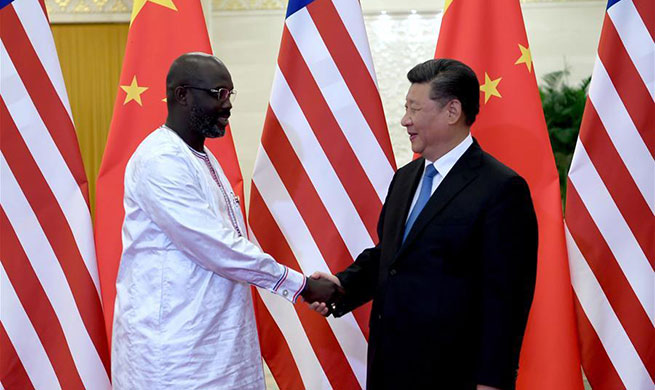by Peter Mertz
DENVER, the United States, Sept. 1 (Xinhua) -- The so-called U.S. Friday deadline for Canada to agree to trade terms elapsed with little fanfare, as both countries agreed to wait until next week to resume talks. Experts and scholars see the two sides are keeping "alert" about any bad deal or no deal for them.
"It is unclear what the ultimate shape of any deal with Canada would look like," said Vincent Smith, an economics professor of Montana State University (MSU).
"Whatever the deal, American consumers are likely to be losers because of what is called trade diversion," he told Xinhua Friday.
"Two and three party trade deals between countries often disadvantage other countries who can offer the same or very similar products at lower prices," said Smith, who is also an expert in the agro-economics field and a visiting fellow at the think tank, The Enterprise Institute.
"U.S.-Mexico deal falls into that category of bilateral trade agreements and will be costly for every U.S. household," Smith said.
Colorado State University political science professor Peter Harris said: "This is all very theatrical and it allows (U.S. President Donald) Trump to occupy center stage and portray himself to domestic audiences as an entrepreneurial deal-maker -- someone who is not afraid to pick fights even with America's neighbors."
"But the reality is that, as a result of Trump's approach, the U.S. is achieving far less on the world stage that it otherwise could have," Harris told Xinhua.
He believed the NAFTA negotiations were a distraction from the bigger picture.
On Wednesday, Trump tweeted he had "home-field advantage" against the Canadian negotiating team after Tuesday's agreement with Mexico.
But Canadian negotiators warned Thursday that they were bound to no deadline and "no deal was better than a bad deal."
The U.S.-Mexico deal means "Canada has been confronted with the potential loss of the major market for exports of Ford, other autos, and auto parts made in Canada," Smith said Friday.
Only 15 percent of U.S. exports go to Canada and punitive tariffs on Canada's auto sector could cost 100,000 jobs in the Ontario area alone, and have been called "catastrophic" by the Canadian media.
Provisions for automobile trade in the proposed U.S.-Mexico trade agreement, as well as some potential loss of markets for agricultural and other exports, like wheat, sent Canadian negotiators scrambling earlier this week to Washington, said Smith.
With 75 percent of Canadian exports, or the equivalent of one-fifth of its GDP, traded to the United States, Canada cannot afford to be shut out from the new North American Free Trade Agreement (NAFTA), Canadian media reported Friday.
The United States and Canada failed to meet a Friday deadline imposed by the Trump administration to revamp the NAFTA trade agreement as major differences remain in bilateral talks.
Trump on Saturday tweeted that there is "no political necessity" to keep Canada in the new NAFTA.
"If we don't make a fair deal for the U.S. after decades of abuse, Canada will be out," Trump said, threatening to terminate the 24-year-old trilateral trade deal.
The United States and Mexico struck a trade deal on Monday, which might pave the way for replacing NAFTA.













